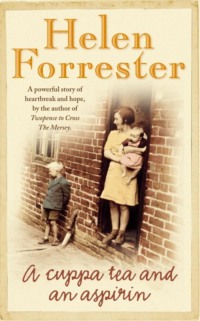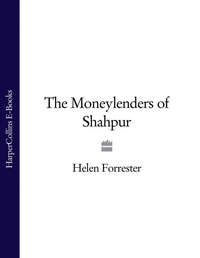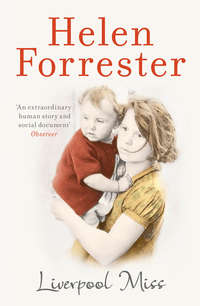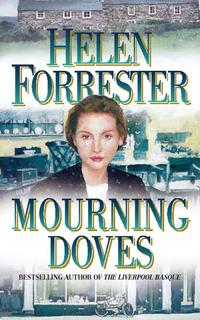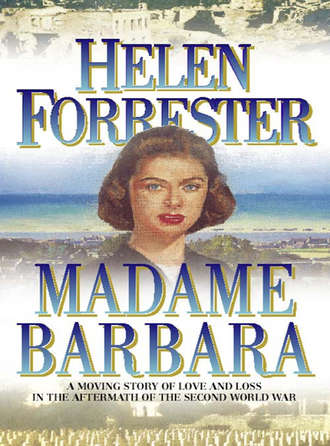
Полная версия
Madame Barbara
Wrapped in her own sorrow while she grappled with the day-to-day problems of existence, she had not thought of such a situation before.
Seated in the train as it rumbled slowly into Euston, Barbara had queried mentally how careful, phlegmatic George might have faced coming home to a ruin – there had been bombs dropped close enough to the bed-and-breakfast for this to have been a possibility. And, in her self-searching, it dawned on her that she did not know; she really had not known him well enough to understand how his mind might have worked. And worst of all, now she would never know him any better – because he was gone.
As she walked towards George’s grave, she thought her heart would break. Because she did not want to cry in front of Jules, she held back the heaving sobs that rose within her. Instead, she clenched her teeth and walked blindly beside him.
Chapter Three
Michel Benion, temporary taxi driver, ex-poultry farmer, slowly rolled up the front of his old black jersey and took his precious packet of cigarettes from inside his undershirt. Abstractedly he watched the little widow as she went with Jules to find the grave.
As he lit a cigarette and then sat down to wait on the step of the antiquated taxi, he felt again the well of pain and humiliation under which he himself still laboured.
It was ridiculous, he fretted in complete frustration, that nearly three years after the end of the war, because the Government had not yet cleared it of land mines, his chicken farm was still unworkable. In fact, the authorities, those mighty gods in Paris, were talking of buying the land from his family and making it into a park. Nearly three years – and they had still not made up their collective minds about it.
Just now, American money is being poured into Rouen and Le Havre where there are lots of voters, he fumed for the hundredth time. Simply because we are only small farmers with no clout, we can wait for ever, exactly like the farmers on the Western Front after the First World War.
And even if we got the farm back, would they lend us money to start again, build barns, buy breeding stock, sustain us financially until our flocks were rebuilt? What about our draught horse? Our cow, our pigs and vegetable garden that fed us?
Save as he and his mother did, in a desperate effort to collect a modicum of capital – living on little more than vegetable soup, bread and cheese, and occasional cigarettes when they could get them – he was beginning to realise that, alone, the family themselves could never acquire enough money to start again.
Of course, like most land in Normandy, their farm was owned jointly by all the members of the family: Michel’s sick brother, Anatole, their mother and their two married sisters in Rouen. It had been hard enough, even before the war, to scratch a living from two and a half hectares, when so many people held rights to it. It had meant intensive use of every inch of land.
Michel’s father had succeeded in buying out his own sea-going brother’s share, which feat had taken him most of his life to achieve; Michel doubted, however, that he would ever manage to buy out his own siblings’ shares, even under the best of circumstances.
And he had begun to ask himself whether he truly wanted to recommit his life to boundless hard work, just to stay alive and pay the rest of the family their share of what he managed to make. Would Anatole, perhaps, recover and be able to help him?
When their father had been alive, Anatole and his two sisters had, in addition to helping on the farm, all worked at other outside jobs and, with the extra money earned, the family had collectively managed quite well.
The girls were gone now, Anatole was very ill, and their mother had aged immeasurably during the ruthless occupation by the German Army. Michel knew he could not carry the burden of work alone; he would have to employ at least one labourer, a great expense when first starting up again, while for a time no money would be coming in.
Even if the Government bought the land to make a park, the resultant money would, after paying their debts, have to be divided between all the family members. Michel himself would still not have capital enough from his share to start a little business of any kind.
For the moment, his mother received an old age pension, and Anatole received a regular allowance and medical care because he was a very sick returned deportee who was being nursed at home. Without these, they would undoubtedly have starved, thought Michel gloomily.
But the value of the franc fell daily, and the cost of everything on the black market was, in consequence, rising formidably – and without the black market, which dealt in everything from bread to boots, they would be in desperate straits.
His mother and Anatole had refused to move further away from their land than Bayeux until a decision was made by the Government. Madame Benion had a fixed belief that if they did not remain close, someone would say the Benions were all dead and would try to claim it. ‘And what is a peasant without land?’ she had asked. ‘Just a body without a soul,’ Michel had fretted. Land was supposed to be the foundation of life.
In the meantime, he had worked for his Uncle Léon as a deckhand on his little coaster, and then had applied for all kinds of jobs in Bayeux in order to keep a roof over the family’s heads. But the only special skill he had was in raising hens – and cooking.
In refugee-filled, but undamaged Bayeux, there were very few jobs for the unskilled, so competition was keen for any work available.
If he could have persuaded his mother to move to the wreckage of Rouen, he could have easily found construction work. He would, he told himself, have cheerfully endured the pain in his shoulder, damaged since childhood, that heavy labour would have given him. But she woodenly refused. So, here he was, a taxi driver for old Duval, who owned the vehicle.
Duval had rented both driver and vehicle to three huge American Army officers for four months. The Americans were really civilian undertakers and were happily engaged in enjoying France, while they arranged for the bodies of their dead compatriots to be dug up and shipped home to the United States. The American Army had not seen fit to provide these civilian employees, even if they wore uniform, with transport; hence their use of the taxi.
Michel grinned slightly. At least, as far as he himself was concerned, the US Army was the soul of generosity. He was doing nicely on the side, ferrying to the local cemeteries people like the sad young English woman this afternoon – and the Americans had said quite blithely that it was OK for him to do so. He hoped old Duval would not wake up to this happy arrangement and demand a cut of whatever extra he earned.
Michel carefully blew a perfect smoke ring, and his thoughts reverted to the carnage on the chicken farm.
Four years earlier, when the hopes of liberation from the German occupation had run high, whispered about in every small café, the French had been filled with new hope. The reality of the cost of being set free had been unexpectedly brought home to the whole district with terrifying suddenness.
At the commencement of the Allies’ preliminary bombardment, many of the Benions’ neighbours fled inland. Unable to believe that French lives or French property would be destroyed, a number remained, including Michel, his mother, and his fiancée’s parents, whose plot abutted that of the Benions.
For a day or two, it seemed that the Benions’ choice had been correct. The attacks appeared to be directed at railway junctions and airports, the coast itself, and towards the destruction of the German Army and its likely escape routes.
While planes of every description flew over and occasionally fought pitched battles with each other above her head, Madame Benion remained determinedly calm. She fed her few remaining hens and collected some eggs, while Michel tended the vegetable garden, their frightened cow, and the squealing sow, which was about to farrow and was terrified by the noise of the diving planes.
The small detachment of German soldiers, camped amid the apple trees at the end of the Benion land, fled one night, leaving their anti-aircraft gun to its fate.
Madame Benion thanked God she would not be further bullied by them and placidly harvested some salad greens. Michel cursed the Germans, because the stable which should have contained their solitary horse was empty.
‘The Boches must have taken it in the night,’ he told his mother.
‘It’s more important that they are gone too,’ she said calmly. ‘We shall manage, somehow.’
But the next afternoon, a hot and summery one, a shell whistled through the clear blue sky over their home and exploded very near the house, blowing out all the windows.
Madame Benion stood in her tiny living room, soup ladle poised over Michel’s empty bowl, and looked bewilderedly down at tiny slivers of glass caught in the hem of her thick serge skirt. It was a miracle that she had not been cut.
The whistle was followed a few seconds later by another one and then a whole series. The sound of the explosions was deafening.
Madame Benion dropped her ladle, while Michel shoved back his chair. ‘La cave, Maman!’ he cried. ‘Quick.’
He herded his mother ahead of him, through the arch that divided the room from the kitchen itself. In the far wall was the door leading to the vegetable garden. He pushed his mother through it. He hastily followed her, after swinging shut behind them the heavy fifteenth-century wooden back door. He did not latch it, which proved to be a mistake.
Very few homes in Normandy have cellars. A couple of strides, however, took the Benions across a narrow garden path to a small outhouse much older than the farmhouse. It had walls two feet thick and, at the far end, it was half buried in the earth. Its tiled roof was held up by ancient, handcut beams. It had long since been chosen by Madame Benion as the safest place to take cover during air raids; the family had, at various times during the war, already spent a number of uncomfortable nights in it.
Michel’s father, alive at the beginning of hostilities, had pointed out that the outhouse had the advantage of there being no second storey to collapse on it and bury those taking refuge.
Its door, like the rest of it, had been built with medieval thoroughness to withstand the attacks of armed men in earlier frays; it was braced by a succession of iron bolts to hold its several layers of wood together. Huge hinges extended an iron grip halfway across the woodwork.
To give some light in the cave, there was one small window high in the far wall. It had a single bar across its centre, to deter anyone small enough from crawling through it. The aperture was further barricaded by an inside wooden shutter, closed by an iron bar across it. Now, through the cracks in the shutter, came narrow flashes from the explosions outside.
This small refuge was normally the storeroom for barrels of cider, a primitive cider press and a small apple grinder, a stock of root vegetables and of eating apples. It also held firewood and odds and ends of farm implements not in daily use. Most of the consumable contents had long since been drunk or eaten by the Germans manning the nearby gun emplacement. It did, however, contain a covered bucket full of water, which Madame Benion changed daily, and a tin of homemade biscuits.
This afternoon, she regretted that she had not had time to bring with her a couple of old feather duvets, which she kept in the kitchen cupboard so that they did not go mouldy in this rather damp outhouse. After the heat of the day, however, the place felt blessedly cool, and she hoped the attack would not last long.
She sat down on an old bench in a corner where in a hollow above a beam, she had, long ago, stored a small parcel of family papers, her personal savings of little silver coins in a tiny canvas bag, Michel’s Post Office savings book, and, best of all, a candle and matches.
Now, she felt around in the half-dark for the candle, found it and lit it.
By the light of the candle, she began pains takingly to pick out of her thick serge skirt the small shards of glass which had caught in the hem. ‘I was lucky not to get this in my face,’ she said, and then winced as she cut her finger.
Michel had come to sit cross-legged beside her. He nodded in agreement with her remark about her face. He did not believe, however, that their luck was continuing. It seemed to him, with the racket outside growing, that they were caught in the midst of a real battle.
As the noise increased, Madame Benion asked Michel to get down the small packets hidden above her. He did so, and she stowed them in the capacious inner pockets of her skirt.
With their faces buried on their knees most of the time, their arms clasped over their heads, they remained in the cellar for thirty-six agonised hours, as the earthen floor shuddered and heavy dust was shaken down on them from the roof. Despite the water and biscuits, their hunger grew.
At first, they screamed with terror; then, nearly out of their senses, numbed by fear, they fell silent. But the noise nearly drove them mad: explosion after explosion, the roar of shells from the ships anchored on the coast, the whistle of bombs, the rattle of machine-gun fire, the terrified shrieks of the farrowing pig nearby, and, worst of all, the dreadful screams of wounded and dying men, as the battle raged backwards and forwards over their precious hectares of land.
The candle burned down and finally went out. Amid thick dust and total darkness, they clung to each other, petrified.
When they heard the unmistakable rumble and crash of heavy tanks, the screech of brakes and tyres of personnel carriers, they were sure their refuge would be crushed and that they would die beneath the outhouse’s heavy beams; and half-forgotten prayers were mechanically mumbled by both of them.
Roaring like a furious elephant, a tank ground its way through the further end of the house and sent stones rattling on to the cave’s roof. Later, something heavy exploded on the other side of the house. The pain in her ears from the blast made poor Madame Benion scream again. Michel held his mother close.
The huge handcut beams held, the thick walls shuddered again and again, but did not give.
As the hard-fought battle finally moved relentlessly on towards the River Orne and the Allies’ target, the city of Caen, the noise gradually lessened.
Limp with exhaustion, Michel and his mother, miraculously not seriously hurt, finally stood up in the darkness. Michel held his mother in his arms, while they both trembled helplessly.
They did not realise until they spoke that they were nearly deaf, that the reduced roar of the bombardment from the naval ships along the coast, and the shaking menace of heavy tanks and personnel carriers rumbling past, were still quite close. The screech of fighter planes and bombers diving over them, however, was sharp enough to make Madame Benion again scream with terror, and they crouched back into their corner.
At last, it seemed that the vibrations under them had eased. Still not realising how deaf they were, it appeared to them quieter outside. They ventured to rise again.
Michel went to the little window first and opened the shutter. Together with a rush of dust, the faint light of dawn filtered in; to him, the noise had become a confused rumbling. He turned to edge his way round the apple crusher to get to the door. He confidently turned the iron ring to open it, but the door did not budge. He turned the handle again and, at the same time, gave it a hearty shove with his good shoulder. It gave slightly.
Encouraged, he pushed as hard as he could. It scraped open a crack.
He turned to his watching mother. ‘Something’s wedged behind it,’ he said.
Madame Benion could not completely hear what he said but she saw the need for help. When he tried again, she added her small weight to his and pushed.
It gave slightly more.
Michel pressed his mother’s hand to indicate that she should keep pushing. Hoping that it would not slam shut again and smash his fingers, he braced himself against it and ran his hand along the opened space. Halfway down the outer side of the door, his fingers touched wood. Below that, there seemed no further impediment. Whatever was there had certainly wedged the door shut.
He withdrew his hand. Already nearly frantic from that which had gone before, panic rose in him.
He stood firm, however, while he tried to control himself. Beside him, his mother shifted slightly. She said something but he could not hear what it was.
Keep your head, he warned himself. You must; otherwise you may starve in this rathole.
Again, he braced himself as firmly as he could to keep the door open as far as it would go. Then he shouted into his mother’s ear, ‘Quickly, Maman, bring me some wood chips and a couple of small logs.’
Despite the loudness of his voice she had not heard him clearly. Uncertainly, she picked up some pieces of firewood.
‘That’s right,’ he shouted at her.
She rapidly collected some more wood and held it towards him in her arms. With one hand, he picked three or four chips to wedge the door as far open as it would go. Very slowly, he eased away from it. The wooden chips cracked with the door’s pressure, but held.
With a sigh of relief, he stepped back.
Gesturing to his mother, he said, ‘Put the wood down here, Maman, and bring me the big mallet we use for pounding in fenceposts.’
While she hesitantly complied, uncertain that she had heard properly, he gave the recalcitrant door another heavy shove. It refused to shift any further.
‘I’m going to give the door several blows with the mallet to see if I can loosen it. Stand back, Maman,’ he shouted.
He swung the heavy tool with all his might, hitting the door several times in quick succession. He wanted to scream with the resultant pain in his shoulder. Undeterred, he aimed several more blows.
It sounded to him as if something outside slid. He stopped and then, once more, he shoved as hard as he could. The door opened about three inches.
Full of hope, he let it swing shut again and then continued to whack it with the heavy mallet, but the best he could achieve was an opening of about three inches – no more. Finally breathless, he gave up.
Her hands hanging loosely at her side, his mother was weeping helplessly. ‘Perhaps someone will come to help us,’ she sobbed.
He doubted whether there would be anyone in the vicinity who had survived. He did not, however, tell her this. He simply grunted and ruefully rubbed his shoulder while he considered what to do next. He was, however, desperately hungry and thirsty, and his usually clear mind was refusing to think constructively.
He leaned his head against the cold stone wall, and then, when he felt steadier, he walked over to the little window with its prisonlike bar, to look out again at a June morning marred by a fearsome amount of dust. In the near distance there was the scarifying sound of continuing conflict, though it was definitely receding; even his troubled ears noted that.
Beside him, his mother sounded as if she were speaking from a vast distance away. ‘What are you doing?’ she asked, her voice cracking.
He had to shout to make her hear. ‘I’m going to try the door once more.’
She followed him trustfully as he returned to the recalcitrant door.
He felt for the smallest log he had picked out. With this in hand, he shouted, ‘Push.’
They gave a concerted shove, and the door opened as much as it had before. Michel quickly pushed the log into the gap to wedge it open. On this more sheltered side of the cave he could now see light a little more clearly than through the tiny window. ‘It must be nearly mid-morning,’ he decided.
He then picked up another log of uneven width. This he handed to his mother, and told her what to do. Making her stand back, he swung the mallet as hard as he could, in a blow to hit the door at the edge of the opening. Then he flung his weight against it. His mother swiftly dropped the second log into the slightly further opened aperture as a rattle of debris came from outside.
Michel paused for breath.
After a moment, he cautiously stretched himself across the door as far as he could reach and ran his fingers down the open edge of it. He could feel that the wooden obstruction now lay wedged against the bottom of the door.
Several more tries failed to shift the door further.
Furious with frustration, he turned from his mother so that she should not see the intensity of his despair and strode again to the window. His mouth tight as he boiled with anger, he seized the bar across the middle of the window and shook it.
In a split second, he found himself thrown back by his own impetus, flat against the apple grinder, the bar still in his hand. From the window a small slither of debris fell to the floor.
He stared in astonishment at the bar, and then he began to laugh hysterically.
Startled, his mother eased herself round the grinder.
Bewildered, she could not understand what had happened. Then her son shook the bar at her. ‘It came out,’ he shouted. ‘But the window’s still too small to get through! It’s so absurd.’ He continued his manic laugh.
When she understood, her own mind began to clear. She went to look up at the aperture. ‘It’s too small for me – in my clothes.’
She continued to stare at it, ‘Anyway, it’s too high for me to reach.’
The laughter behind her died away. She heard Michel drop the iron bar. He came to stand beside her and looked down at her. She was indeed small, like a young girl, a wisp of a woman, just bones from lack of adequate food.
She said, ‘If I could reach, I could get through – without my skirts.’
He made her repeat the remark, not sure that he had heard correctly. ‘Could you?’
‘I believe so,’ she said slowly. ‘I should go face down and feet first, because I don’t want to drop on my head on the other side.’
He rubbed his ears in the hope of persuading them to clear, so that he could hear better. Then he said loudly, ‘I don’t think you would have much of a drop, Maman. The potato patch slopes slightly up towards the window – and it would be soft.’
She made a wry face. ‘I would still need to be face down because my old body won’t bend backwards much in order to ease myself down the wall. I don’t think even a young girl could do it face up.’
Despite the dire need to get out of their prison, this cold assessment of what a lifetime of toil had done to her body distressed Michel beyond measure. Maman was like a little tree constantly exposed to an east wind – she was indeed permanently bent forward.
Though she said with determination that she was prepared to try to ease through the window naked, and go for help, she was shy at appearing unclothed even before her son, never mind any foreign soldiers who might be around.
‘I could push your clothes through after you,’ suggested Michel. Then loath to put her through such an ordeal, he said, ‘We could first try shouting for help. There might be somebody out there after all.’
They shouted and yelled at the tops of their tired voices. To no purpose.
Michel then tried to move the windowsill. It had, after nearly a thousand years, crumbled partially under the constant vibration of the attack, and had thus loosened the bar. The sill was badly cracked, but little more of it could be moved out of its stony, foot-long depth. Michel cursed his forefathers for building so soundly.
Women can be so brave, thought Michel now as he smoked peacefully in the sunshine at the cemetery while he waited for Barbara Bishop.
He remembered suddenly a story of the first day of the British invasion. A young French girl had run down to the beach, through the heavy fire and the general carnage, and had waded out into the sea to drag wounded soldiers to the shore before they drowned. She had stayed there, a lone woman, doing her best to reduce the suffering. She must eventually have been killed, he decided, but nobody knew for certain. Without doubt, alive or dead, women rarely got any credit for their bravery.



